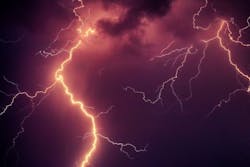The New Jersey Department of Environmental Protection (NJDEP) has published a revised set of storm water regulations.
These regulations will impact land development practices within the state, according to NJDEP. The revisions require the use of decentralized green infrastructure practices as well.
The new rule amendments took effect Mar. 2, 2021, reported NJDEP.
“With decades of experience managing storm water with both manufactured devices like expensive underground concrete vaults and less costly nature-based solutions like rain gardens, New Jersey has learned that engineering with nature provides better and more cost-effective outcomes for our water quality while beautifying our communities,” stated NJDEP Acting Commissioner Shawn LaTourette in the press release.
Every New Jersey municipality must update its storm water ordinance to reflect and comply with the new rule language. NJDEP provided a sample stormwater ordinance for reference.
The new rules eliminate subjective language and instead replaces it with a mathematically-based set of standards for storm water design compliance.
Another component of the new rule is the change in permitted storm water modeling criteria, reported NJDEP. More specifically, infiltration of captured storm water through best management practices (BMPs) is now permitted in engineering calculations which will result in smaller storm water BMPs, maximizing developable area on a site. These BMPs cannot be used for water quality or groundwater recharge without a waiver/variance, added NJDEP.
The NJDEP provided new tables clarifying the applicability of different BMPs when used to meet the requirements for groundwater recharge, water quality, and quantity standards.
As of Mar. 2, 2021, green infrastructure will be the preferred and predominate method for managing storm water as required by the state’s Stormwater Management Rule, reported NJDEP. This rule is used by DEP and jurisdictions throughout New Jersey in evaluating and permitting development projects, as well as ensuring local government compliance with storm water permits administered by DEP under the federal Clean Water Act.
